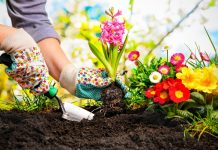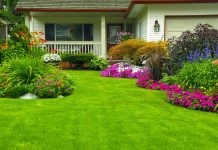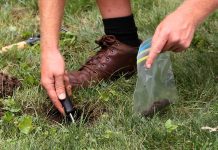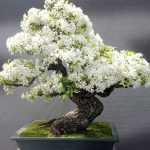Making your own organic potting soil may seem like a daunting task. You may be tempted to buy the ready mixes for your gardening needs. Packaged potting mixes are easy to use but they are not friendly to the environment or to your pocket. You may opt to buy and use packaged organic potting mixes, but it will turn out much more economical if you make your own potting soil.
A packaged potting mix is usually made of vermiculite, perlite and peat moss, all expensive ingredients. These need to be extracted from the earth and invariably travel long distances to be a part of packaged potting mixes. Thus, true organic potting soil would mean a good mix of compost and the best for your garden soil. With a few trials, you will be able to create the best mix for your plants and in the same time save some money.
Avoid exotic components in organic potting soil
Peat moss

Peat moss is among the major components of packaged potting mixes. It can be easily replaced with natural products that one can easily find in and around their own homes.
Composted wood chips and tree bark are perfect ingredients to replace the peat moss content in the packaged potting mixes. It can also be replaced by a peat like substance RePeat, manufactured from cow manure that has been used for methane production.
If you happen to be living in Central America or India, you can use coconut husk fibers or coir to replace peat moss. If you have access to grain hulls, compost them to use as a light potting material.
Vermiculite
It is generally extracted from mines and most of them have traces of asbestos. Leaf mold, rotted sawdust along with organic matter from the garden waste effectively replaces vermiculite.
Perlite
Perlite travels long distances to reach your garden and its work is easily accomplished with the help of a handful of clean sand. Sand helps improve drainage and gives the potting soil a light texture. A thin layer of sawdust or rotted leaves can also do the trick.
Keep microbes away
Organic potting soil comes with its own problems too. If not treated properly it could turn out to be a bane instead of a boon for your young plants. The very microbes that help create the healthy compost rich potting soil can destroy the saplings and young plants. Once the microbes are done feeding on the organic waste in the compost they will need food to sustain and will turn to the plants, infecting them.
The prepared potting soil needs to be pasteurized before using it in pots. During the hot summer months, a homemade solar cooker can be used to pasteurize the pot soil. During the cooler months, the soil needs to be heated in an oven. The organic potting soil should be heated at 180 degrees for half an hour. This will kill most microbes and make the potting soil safe for use.








